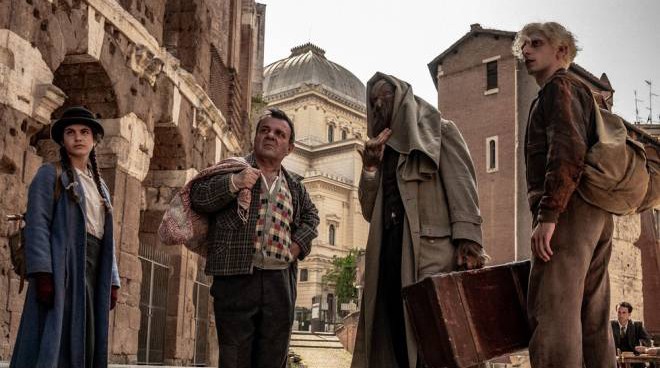The Matrix Resurrections
Despite the original Matrix trilogy was fully fleshed out and conclusive, its ending definitely left room for more. The Matrix Resurrections tries to fill the void that remained, but its idiosyncrasies prevent it from fittingly continue the saga.
 |
Unlike what public opinion seems to suggest, Resurrections actually should not be dismissed in its entirety. The first act is very strong, it reaches a level of metafiction that surpasses its original and that would have been worth further exploring. Post-modern at its core, it manages to question the very legacy left behind by the original films and further expand on the notion of solipsism that drives the franchise.
As the film goes further down the rabbit hole however, these topics are inexhorably abandoned in favour of a more traditional sequel. The most painful thing is that a continuation that would have maintained the direction set by the first act could have lead all the same to the climax, probably the only part of the film that feels in terms of action coordination and photography like the previous films. Thus presents itself another flaw of this film: no fight scenes felt as spectacular as the ones from Reloaded or Revolutions, nor the photography, which however was stunning, it did not convey any sense of continuity with the trilogy, except the climatic final sequence, but it must be specified that neither the different style fo the resto fo the film or the style of the final part’s return to the original colour palettes has any story related motivation.
What made the trilogy so unique was its derivation from japanese anime in terms of visual language and characterisation, or the very serious, incolloquial dialogues. Resurrections has none of that, and on the opposite, does its best in redefining to the downside several characters, with disastrous consequences, which could not be prevented even by the efforts of a rather solid supporting cast. The choice of employing a more daily, contemporary, “young” dialogue only worsens most of the scenes. The philosophical questions and debates that are among the best traits of the trilogy and the subtle ironies created by the seriousness of it all disappear entirely to leave space for something much more basic.
Much how the firs half is pulled down by a mucb less interesting second act, so all the good ideas and concepts introduced in the second half are systematically weighed out by major flaws: for example, a rather clever obstacle, with some metafictional undertones is introduced, but it is rather poorly employed and ultimately nerfed down by a deus ex machina (not the literal one from Revolutions). Poor execution might be the final key word for The Matrix Resurrections; despite great ideas and a story that on paper could have been a fitting follow-up, the execution of it all ruins the final result, even if the good aspects of the film are as good that they deserve to be further explored, even if this evenience is rather unlikely.


Comments
Post a Comment